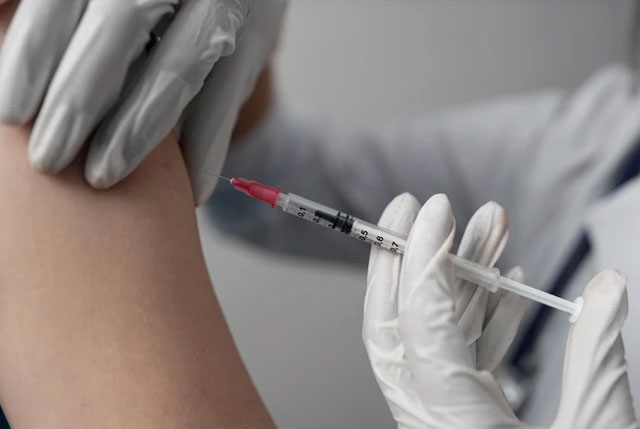Daijiworld Media Network – Mumbai
Mumbai, Oct 31: The Human Papillomavirus (HPV) vaccine, hailed as a breakthrough in cancer prevention, is once again in the spotlight across India as several states roll out immunisation drives. With cervical cancer ranking as the second most common cancer among Indian women, experts are urging greater awareness and participation in HPV vaccination programmes.
HPV is among the most common sexually transmitted infections, affecting nearly 80 to 90 per cent of sexually active adults at some point, shares Dr Tarjnee Tiwari, MD, Sion Hospital, Mumbai. “Most HPV infections resolve naturally, but certain high-risk strains like types 16 and 18 are strongly linked to cervical, throat, anal, and other cancers,” she explains.

While vaccination drives primarily target adolescents, many adults are now questioning whether it is too late for them to receive protection. Experts say that adults can still benefit—depending on age, prior exposure, and personal risk factors.
Guidelines on HPV vaccination
Health authorities globally recommend HPV vaccination for girls and boys aged 9 to 14, ideally before the onset of sexual activity to ensure the strongest immune response. However, adults who missed their teenage doses still have an opportunity. The vaccine is approved for use up to 45 years of age, though for adults aged 27 to 45, doctors suggest a shared decision-making approach based on lifestyle and potential exposure risk.
“The best protection against cancer-causing HPV strains occurs before exposure,” says Dr Tiwari. “However, since more than half of all new HPV infections occur after age 25, adults too can benefit from vaccination.” She adds that while two doses are recommended for individuals vaccinated before 15, a three-dose schedule is advised for those between 26 and 45 to ensure adequate protection.
Awareness among men
Physicians highlight that many men remain unaware of their risk. “For men aged 22 to 26, catch-up HPV vaccination is recommended, especially for those who are immunocompromised, including men living with HIV,” says Dr Kanika Batra Modi, Associate Director and Clinical Lead, Gynaecologic Oncology, Max Healthcare, Delhi. “While not mandatory for others in this age group, it still provides significant protection against HPV-related diseases such as penile and throat cancers,” she notes.
Benefits for adults
HPV vaccines have demonstrated long-lasting protection. “Continued immunity against high-grade cervical, vaginal, and vulvar neoplasia has been observed for at least 84 months following vaccination,” says Dr Modi. “Persistent antibody levels and protection have been reported up to 10 years post-vaccination.”
Key benefits include:
• Protection against HPV strains not yet encountered, even for sexually active adults.
• Reduced long-term risk of cervical, oral, or anal cancers.
• Greater accessibility and affordability with India’s indigenous vaccines and growing awareness.
Limitations for adults
While effective, vaccination in adulthood has some limitations. “Indian adults can safely take the HPV vaccine up to 45 years of age, but its effectiveness decreases if exposure has already occurred,” says Dr Modi.
Points to note:
• The vaccine prevents new infections but does not treat existing ones.
• Adults may have already been exposed to some HPV types, reducing overall benefit.
• Regular screening through Pap smears remains essential even after vaccination.
Who should avoid the HPV vaccine
The vaccine is generally safe, but certain individuals should avoid or delay it:
• Pregnant women: Vaccination should be postponed until after pregnancy.
• Allergic individuals: Those allergic to previous HPV doses or ingredients like yeast or latex should inform their doctor.
• Unwell individuals: Those with moderate or severe illness should wait until full recovery.
Experts advise consulting healthcare providers to determine the right time and suitability for vaccination. With rising awareness and expanding access, India’s HPV vaccination drive offers a renewed opportunity to protect future generations—and even adults—from preventable cancers.